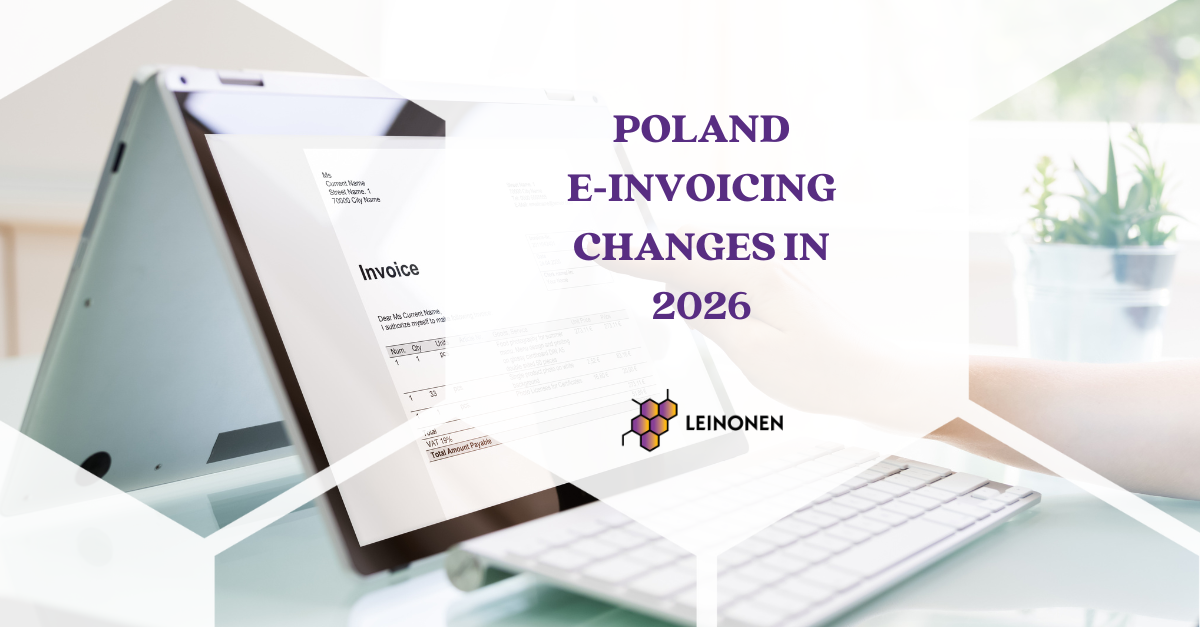In the dynamic landscape of global commerce, Poland is gearing up for a significant transformation in its invoicing procedures. Effective from 2026, Poland is set to implement mandatory electronic invoicing through the National e-Invoicing System, known as the KSeF system. This paradigm shift aims to streamline invoicing processes, increase efficiency, and bring a digital revolution in the world of financial transactions.
The National E-Invoice System: Revolutionizing Invoicing in Poland
The KSeF system stands as an innovative ICT platform designed to facilitate the issuance, reception, and archiving of structured invoices within Poland. It provides a framework for the seamless exchange of electronic invoices, particularly in the business-to-business (B2B) areas. Notably, the system is accessible free of charge for both B2B and business-to-government (B2G) transactions.
Introduced from 2022 on a voluntary basis, the KSeF system will transition into a mandatory solution by 2026, requiring compliance from companies of all sizes across Poland. Structured invoices within this system encompass specific information outlined in regulations and are stored in a designated electronic format, enabling easy extraction and processing of embedded data.
The Technical Nuances of KSeF and Challenges for Foreign Entities
However, as with any transformative shift, the implementation of KSeF presents a set of challenges, especially for foreign entities operating within Poland’s economic landscape.
Technical issues: The KSeF system may experience technical issues, which could cause delays or rejections of invoices.
Validation process: Each invoice will be validated by the KSeF from a technical perspective, and any technical mistake will result in rejection by the KSeF. This could cause issues for foreign companies that are not familiar with the KSeF system.
Scope of e-invoicing: The scope of e-invoicing will apply to activities that currently require documentation with an invoice issued in accordance with the Polish VAT Act. However, other activities may be included, such as services subject to VAT exemption. This could cause confusion for foreign companies that are not familiar with the Polish VAT Act.
Fixed establishment criteria: Foreign companies with a fixed establishment in Poland will be subject to mandatory e-invoicing. However, the fixed establishment criteria are controversial in the EU, and the Ministry of Finance plans to issue explanatory notes specifically on the fixed establishment criteria to help foreign companies and their Polish contractors determine whether they have a fixed establishment in Poland.
Attachments to invoices: Businesses cannot add attachments to invoices in the KSeF system. This could cause issues for companies that are used to attaching supporting documents to their invoices.
Corrective notes: Corrective notes are excluded from the KSeF system. This could cause issues for foreign companies that need to issue corrective notes.
Language barrier: The KSeF system is in Polish, which could cause issues for foreign companies that do not speak the language.
Navigating and Focusing on the Transition Period
As the 2026 is not far away, it becomes imperative for foreign companies with operations in Poland to prepare diligently. Seeking IT support to ensure compliance with e-invoicing requirements, understanding the nuances of the KSeF system, and staying ahead of clarifications and guidelines issued by the Ministry of Finance will be crucial.
How Can Leinonen Help With Adapting to E-Invoicing in Poland?
Poland’s shift to mandatory electronic invoicing through the KSeF system represents a significant step towards a digitized future. While the transition presents several challenges, proactive adaptation and alignment with the system will enable businesses to thrive within this new invoicing landscape.
As Poland moves towards digital environment, collaboration between local authorities and foreign entities becomes pivotal in navigating these changes seamlessly, ensuring a smooth transition into an era of enhanced efficiency and digitized financial operations.
If you need a reliable accounting partner in Poland, contact Leinonen.





